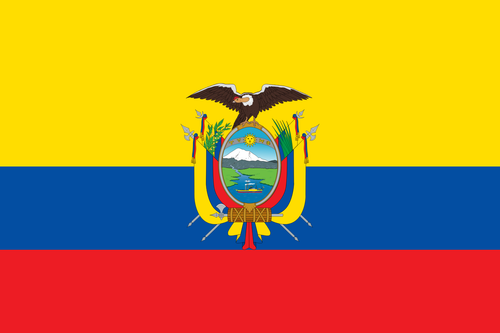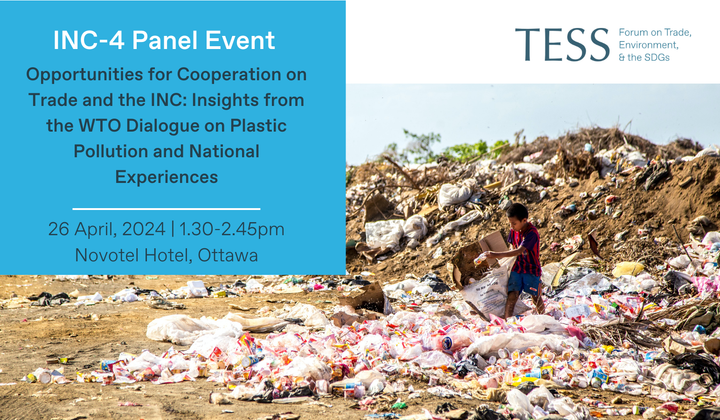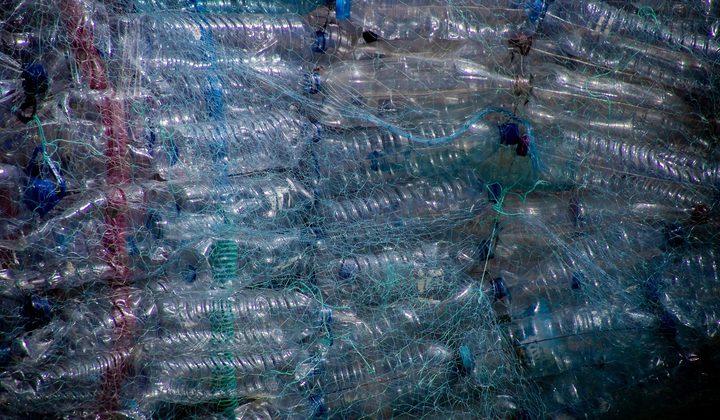Trade occurs in significant volumes at all stages of the plastics life cycle. In 2022, the value of global plastics trade was over $1.2 trillion, or almost 4% of global trade. Accurately tracing plastics trade flows is a difficult task because plastics are present in a vast number of products traded internationally. Notably, official trade data provide limited information on the trade flows of products that contain embedded plastics or have associated plastic packaging.
Members states in the Intergovernmental Negotiating Committee (INC) to develop an international legally binding instrument on plastic pollution, including in the marine environment have considered transparency in trade flows as a key aspect to implement effective control measures for plastic products and chemicals of concern in plastic products.
Trade data collection is underpinned by the classification of products provided by the World Customs Organization’s (WCO) Harmonized Commodity Description and Coding System, generally referred to as the Harmonized System (HS). This international nomenclature is an important starting point to inform public policy with a more granular picture of trade flows across the whole life cycle of plastics.
Also, to ensure better control of transboundary movements and prevent illegal traffic certain Multilateral Environmental Agreements have processes of collaboration with the WCO. For example, the Basel Convention has had a long-standing cooperation with the WCO to identify wastes covered under the Convention in the HS.
The Dialogue on Plastic Pollution and Environmentally Sustainable Plastics Trade (DPP) at the World Trade Organization (WTO) has held dedicated sessions to explore and identify ways to improve transparency, monitoring and understanding of trade flows throughout the value chain of plastics, including through enhanced, close, and constructive cooperation with other international organizations, engagement on different processes and collaboration with relevant stakeholders.
In this side-event, Barbados and Ecuador, as co-coordinators of the DPP at the WTO in collaboration with the Forum on Trade, Environment and the SGDs (TESS) brought attention to the importance of furthering transparency efforts to address plastic pollution. This panel discussion made visible, some often invisible elements of environmental policy development and provided an overview of:
- The importance of transparency and data, including through the HS system for effective implementation of multilateral environmental agreements (MEAs), such as the Basel and Stockholm Conventions, as well as domestic policies aimed to protect the environment and health.
- The transparency needed to implement a future plastics treaty effectively and where transparency, including through the HS could support early implementation.
- The work of the DPP on improving transparency, monitoring and understanding of trade flows throughout the value chain of plastics, including through enhancing international cooperation and addressing trade-related capacity building and technical assistance needs of developing members.
Agenda
Welcome and scene-setting
Improving transparency of trade flows throughout the value chain of plastics - insights from the DPP and other efforts
- H. E. Ambassador José Valencia, Permanent Representative of Ecuador to the World Trade Organization
- H. E. Ambassador Matthew Wilson, Permanent Representative of Barbados to the United Nations, World Trade Organization and other International Organizations in Geneva
- Carolyn Deere Birkbeck, Founder and Executive Director, Forum on Trade, Environment, & the SDGs (TESS) (moderator)
Technical Panel Discussion
The discussion reviewed the contributions from the DPP, in addition to addressing the interlinkages between the World Customs Organization Harmonized System and Multilateral Environment Agreements, and consider possible lessons for a future Plastics Treaty. The technical panel brought to light possible options and advancements in facilitating compliance with transparency and traceability measures in Multilateral Environment Agreements, illustrated by the Basel Convention’s experience in using technologies to facilitate compliance with prior informed consent (PIC) procedures.
- Melisa Lim, Programme Officer, Secretariat of the Basel, Rotterdam and Stockholm Conventions.
- Gael Grooby, Acting Director, Tariff and Trade Affairs, World Customs Organisation
- Simon Ardila Eraso, Policy Advisor, Forum on Trade, Environment, & the SDGs (TESS)
- Carla Valle-Klann, Programme Management Officer, Science and Technical Assistance Branch, Secretariat of the Basel, Rotterdam and Stockholm Conventions
Question and answer session
Concluding remarks by DPP Co-coordinators
BRS COPs Official Side Event - Plastic Pollution and Transparency in Trade Flows in the Context of Multilateral Environmental Agreements and the Protection of the Environment and Health
We encourage you to watch the full event video.
Co-organized with







